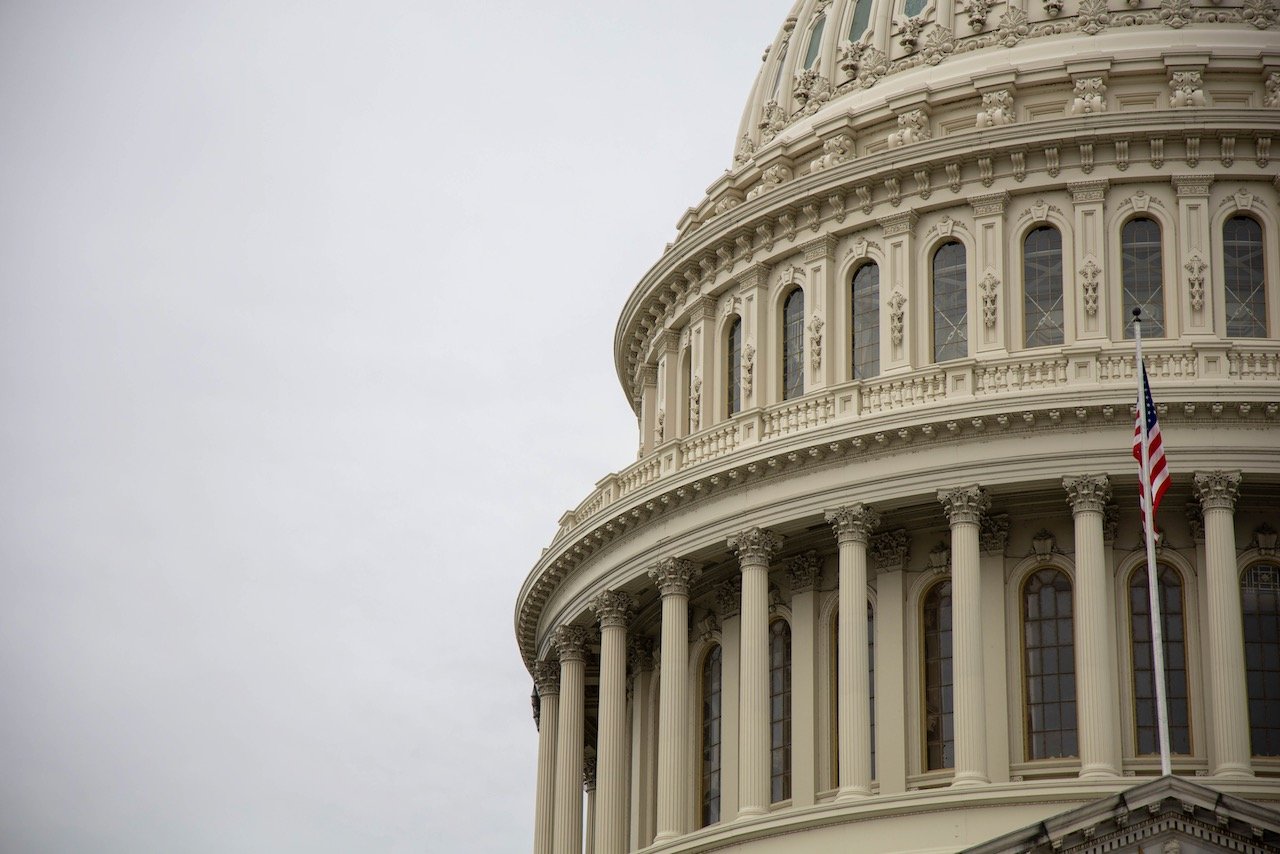After thousands of hours of schooling, internships, studying, exams, office hours, and clients, my twin sister has officially become a licensed Marriage and Family Therapist. As I’ve watched her excel in her vocation, I’ve seen how beneficial and necessary professional therapy and counseling can be in the life of a believer.
Wait, Therapy? Huh?
In Protestant circles, there seems to be controversy surrounding the place professional therapy should have in the Christian walk. If you are truly following God and walking in obedience to Him, why would you need therapy? Can’t God, His Word, and Christian community provide what is necessary to heal the depths of our psychological brokenness?
I’ve also spoken to many believers who have found themselves in turmoil, blaming themselves for cognitive hang-ups as if it is somehow connected to the health of their spiritual lives. Turning over rocks, pledging deeper obedience, and intense praying failed to ease their depression and anxiety, resulting in enormous shame and even questioning “What’s wrong with me?”
Have we considered the possibility that these mental difficulties might not be the result of a poor spiritual life?
Mental Health Therapy is Comparable To Physical Therapy
What might be helpful is relating mental difficulties to a physical injury. There are moments in life when we need professional help for injuries sustained like a broken bone or a torn cartilage. Just as these injuries are examined, reset, and healed, the mind is the same way. Oftentimes, the services of a licensed therapist/counselor who has been professionally trained in the area of the psyche and the mind is the most common-sense, responsible, and medically-reliable answer to a psychological difficulty, such as depression or anxiety. Just as we wouldn’t look at a child with a broken arm and rely on just prayer to heal the bone, we would be negligent to apply the same philosophy to a misaligned mind. Please don’t misunderstand - I believe in God’s power to heal, yet I also believe in God’s power to provide professionals with the appropriate expertise and wisdom to help those in psychological need.
Therapy Is Essential for Spiritual Growth & Formation
I love how Christian author Robert Mulholland puts it in his book Invitation to a Journey: A Road Map for Spiritual Formation. He says this -
“Oftentimes, profound, deep-seated psychological problems are met with demands for deeper faith, more rigorous obedience, more vital spirituality. [Yet], psychological brokenness needs treatment in the same way that a broken bone needs to be set and healed. There may come points in our spiritual pilgrimage when the Spirit of God awakens us to some area of deep psychological imbalance or brokenness within. At those points, sound psychological therapy becomes an essential component of our spiritual journey. Psychological therapy, carried out within a Christian understanding of human nature, can richly enhance spiritual formation, just as holistic spiritual formation always enhances sound psychological treatment. Neither of these is a substitute for the other, but they work together as means of grace through which God forms us in the image of Christ for the sake of others.” - Robert Mulholland
Wait, What Does A Therapist Actually Do?
What happens in a professional therapist’s office? What I’ve learned is, when trauma strikes (large and small), it gets lodged in our bodies, severely limiting our ability to experience peace, joy, and flourishing, as God intended. Oftentimes, anxiety and depression is the human body trying to overcorrect, cope, and make sense of trauma.
A professional therapist has the accredited training and ability to support, listen, identify, and help their client trace the roots of the trauma itself. Once identified, the client and therapist together can practice evidence-based therapy techniques to correct a struggling mind and false neural pathways.
Professional therapists are also able to find and correct distress caused by generational family systems, childhood abuse, false narratives, behavioral stuck patterns, poor attachment styles, and more. A therapist not only provides tools, but also provides an emotionally safe, redemptive relationship to their clients.
All this to say, it is profoundly freeing for a struggling believer to have a safe, confidential space to gently dig through, identify, and heal from decades of emotional baggage which had previously manifested itself into mental distress and turmoil. Well-trained therapists will encourage and empower their clients (despite whatever has happened to them) to take personal responsibility and put into practice the tools learned, eventually leading to autonomous flourishing.
With this kind of understanding of mental illness, it is quite common for there to be community-enriched, Word-saturated, striving-for-holiness Christ-followers out there who still experience emotional and mental turmoil in their life - requiring psychological help and healing which can take place in a counseling office.
Couples and families can also find breakthrough in therapy sessions together. Professional therapists will likely not take sides, but rather seek to help parties speak in a way where they can understand one another, providing great clarity to marital and family dysfunction.
Now, there may be times in life where our mental struggles are the result of poor decisions, ongoing sin, or lack of faith and prayer. Yet - I have found oftentimes we actually pursue sin in order to cope with or escape from our mental illnesses. This should give us enormous compassion and grace for those struggling.
Shouldn’t We Be Skeptical of Worldly Therapy & Wisdom?
Some Christians might express concern with seeing a counselor who doesn’t share a biblical worldview. What if worldly philosophies are guiding the therapist’s understandings? Aren’t there dangers with modern psychology? These are valid questions and concerns. Let me share a few thoughts -
God, in his common grace is not beyond using secular tools and worldly knowledge to provide freedom and peace for varying levels of human brokenness. Just as God uses the knowledge of a medical professional to tend to the body, He also can use the expertise of a mental professional who has avidly studied the pathways of the mind.
Well-trained counselors will honor, listen well, and try to understand and work toward a client’s implied and stated values, even if those values differ from the therapist’s values. Put simply, a therapist helps clients identify their own values and move towards them. If a therapist tries to align a client’s values to their own, this is no longer therapy. As with anywhere, there are good and bad therapists (as there are good and bad doctors, teachers..etc). If there are problems or concerns with one’s therapy experience, a client can simply find a new counselor who would be a better fit. Referrals from a trusted and reliable source are helpful, too.
It is technically unethical for a therapist to criticize a client’s faith. As mentioned earlier, therapists are there to assist and help the client work through their psychological distress, not change one’s values. I was encouraged to recently read a study from the American Psychological Association that reported a majority of psychologists do find faith and spirituality very helpful in the lives of their clients.
What is the Difference Between Pastoral Counseling and Professional Counseling? Should We Only Seek Out Professional Christian Counselors?
I’ve heard many ask this question. Some additional thoughts to consider -
Professional Therapists are there to provide mental health guidance and treatment, not spiritual direction for their clients. If a client is looking for biblical direction or spiritual guidance, this is where Pastoral or Biblical Counseling can be helpful. Pastoral Counselors and Spiritual Directors are incredible resources in the Body of Christ for spiritual mentoring and guidance. In the same way, Pastoral & Biblical Counselors, unless they are professionally-trained therapists, should be wise and proactive when noticing if the person they are counseling needs the services and treatment provided by a professional - such as cases like debilitating anxiety, chronic depression, PTSD.. etc.
Professional Christian counseling is a great option. However, if mental health therapy is the goal, this can be a service offered by any professional therapist, Christian or not.
To nuance this out a bit, I’ll share a personal story. In a particularly difficult season of my own life, I attended weekly counseling sessions with a gifted, licensed professional therapist who helped me understand and work through my mental health - specifically, anxiety. God used this therapist to provide an enormous amount of freedom for my anxious body. She provided life-altering expertise and tools which I plan on implementing for the rest of my life. At the same time, I had a spiritual director/mentor who daily walked alongside, mentored, and poured into me spiritually. She helped me navigate and reclaim my identity in Christ, which was vital for my weary soul. I sincerely needed both types of counseling in that season, as God used these two women (and still uses these women) in powerful yet different ways in my life.
Stay Glued to Mentors, the Word, Community & the Holy Spirit
My final note is this - a mature believer will not take a therapy journey alone. It would behoove them to do so while staying glued to God’s Word, the Holy Spirit, authentic Christian community, and perhaps even a close mentor. These are invaluable, life-giving resources God has provided to us for our nourishment, companionship, and flourishing. As Robert Mulholland pointed out in his book earlier, beautiful healing comes for the mentally-struggling believer when these are practiced together.
All this to say, for the Christian who wrestles with mental difficulties or an illness: there is tremendous hope. May the wise and God-fearing Jesus follower feel no shame enlisting themselves to the services of professional therapy. God uses this beautiful tool for our freedom and flourishing, and I am a living testimony of this.
-Natalie Goens
















